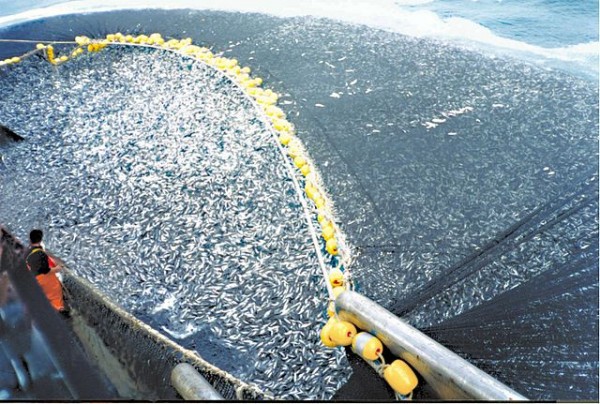By Ana Verayo, | March 30, 2016

Overfishing can be solved with sustainable fishing practices that can recover global fisheries by 77 percent.
A new study reveals how fish populations are already declining all over the world for decades now, and this includes species of tuna and mackerel that have dropped to a whopping 74 percent between 1970 to 2010. However, new findings say that global fisheries can still rebound in just a short amount of time.
Like Us on Facebook
Researchers claim that with the help of improved fishing practices, about 77 percent of global fisheries can return to its robust condition within a period of 10 years. This would mean that these fish populations will double and can yield a 204 percent profit for fishermen by the year 2050.
According to author of the study, Amanda Leland from the Environmental Defense Fund, these findings are surprising, showing how humans can easily solve this problem. She says that it will be hard to find another global environmental challenge that can be potentially solved easily.
The team from the University of Washington and University of California Santa Barbara examined data from more than 4,700 fisheries around the world, which represented about 78 percent of the global fish catch on record.
In this new study, researchers discovered that if trends continue, there will be an inevitable "continued collapse" of numerous fisheries in the world. However, there are sustainable ways for catch limits that are scientifically backed, that can yield annual increases in seafood of more than 16 million metric tons with a yearly profit reaching almost US $53 billion.
Sustainable fishing practices will not affect economic returns negatively but can also increase them in the long run, contrary to prior belief. According to lead author of the study, Chris Costello from the University of California, Santa Barbara, ocean fisheries should not be viewed as trading off with something, explaining that there could be more fish in the water, more food for everyone and more prosperous fishing communities, which can all occur relatively quickly.
This means that more fish in the oceans can translate to more significant food security for 3 billion people who depend on seafood as their primary source of protein. This prediction can also yield triple benefits, more fish, more food security for humans and more jobs, according to Leland.
Results of sustainable fishing practices have been positive so far, where nations such as Australia, Denmark and the United States already applied institutional reforms and required immediate action from global leaders for this important recovery of worldwide fisheries.
This new study is published in the journal, Proceedings of the National Academy of Sciences.
-
Use of Coronavirus Pandemic Drones Raises Privacy Concerns: Drones Spread Fear, Local Officials Say

-
Coronavirus Hampers The Delivery Of Lockheed Martin F-35 Stealth Fighters For 2020

-
Instagram Speeds Up Plans to Add Account Memorialization Feature Due to COVID-19 Deaths

-
NASA: Perseverance Plans to Bring 'Mars Rock' to Earth in 2031

-
600 Dead And 3,000 In The Hospital as Iranians Believed Drinking High-Concentrations of Alcohol Can Cure The Coronavirus

-
600 Dead And 3,000 In The Hospital as Iranians Believed Drinking High-Concentrations of Alcohol Can Cure The Coronavirus

-
COVID-19: Doctors, Nurses Use Virtual Reality to Learn New Skills in Treating Coronavirus Patients







